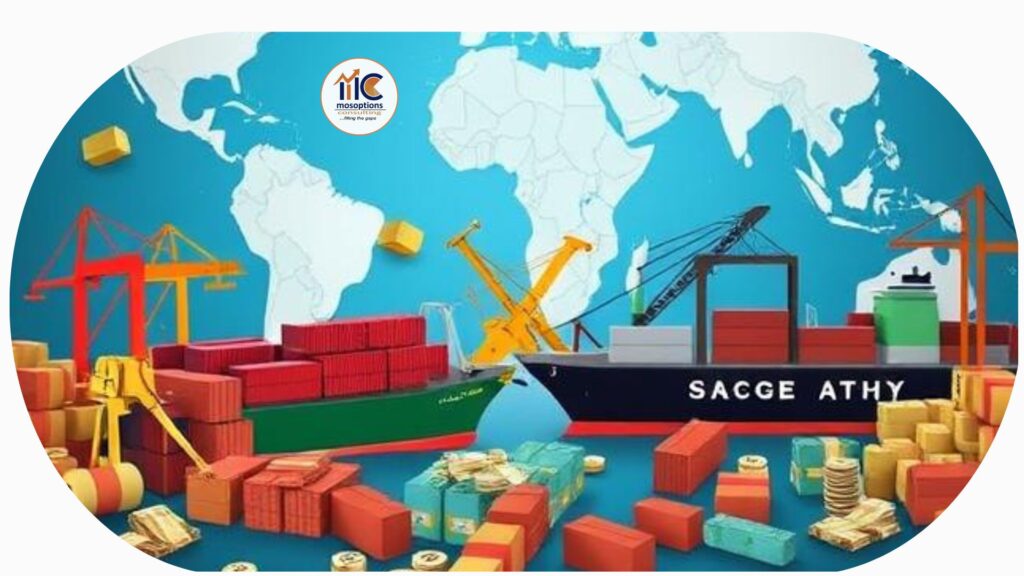Global Tariff Wars
Global Tariff Wars: What’s at Stake for Nigeria?
In a world increasingly shaped by protectionist policies and trade disputes, tariff wars are no longer isolated battles between economic giants, they create ripple effects that touch even the most distant economies. Nigeria, as a developing and import-dependent nation, is not immune.
With recent escalations in tariffs between major players like the U.S., China, and the EU
- U.S. tariffs on Chinese EVs 100% (up from 25%)
- EU carbon tax (CBAM) taxing imports based on emissions (2025 enforcement)
- China retaliating with restrictions on Western tech & agriculture
For Nigerian businesses, this isn’t just headlines, it’s a supply chain, pricing, and strategy crisis.
The question becomes:
What does this mean for Nigeria’s economy, trade policy, and businesses?
What Is a Tariff War?
At its core, a tariff war is when countries impose higher import duties (tariffs) on each other’s goods in a bid to protect domestic industries or retaliate against perceived unfair trade practices. The goal? Economic advantage. The result? Global trade tension, disrupted supply chains, and unpredictable market behavior.
Why Should Nigeria Care?
While Nigeria may not be directly involved in these disputes, the indirect consequences are significant:
Disrupted Global Supply Chains
When trade between giants like the U.S. and China slows down, it affects the movement of goods globally. Nigeria, which imports machinery, electronics, and even food items from these markets (either directly or through intermediaries), feels the heat.
- Delays in goods
- Higher prices due to rerouting or new sourcing
- Increased business costs
Commodity Price Volatility
Tariff wars affect global demand. When large economies slow down trade, they reduce consumption. That impacts global commodity prices, including oil and agricultural exports, two areas where Nigeria is heavily involved.
Lower demand = lower prices = lower export income.
Inflation Pressure
When tariffs cause price hikes globally, Nigeria feels the imported inflation. With a weak naira and heavy reliance on imports, even small disruptions abroad can significantly raise the cost of goods locally.
Exchange Rate Instability
Global uncertainty from trade wars often pushes investors toward safer currencies in advanced economies. This can cause capital flight from emerging markets—including Nigeria—putting more pressure on the naira.
Nigeria’s Structural Weakness Exposed
Tariff wars are a stark reminder of how vulnerable Nigeria is to global shocks due to:
- Over Reliance on imports
- Limited local production capacity
- Weak value chain integration
- Policy delays in trade, infrastructure, and industrial strategy
Flip Side: A Wake-Up Call and an Opportunity?
There’s a silver lining. As global markets grow uncertain, Nigeria has a renewed chance to focus inward:
- Boost local manufacturing and reduce dependence on imports
- Take AfCFTA (African Continental Free Trade Area) more seriously, regional trade could buffer global shocks
- Develop export substitution strategies to build resilience
What Does This Mean for Nigerian Businesses?
Whether you’re importing goods, managing a retail chain, or supplying local manufacturers, uncertainty is the real cost of a tariff war.
You may face:
- Increased inventory costs
- Unexpected delays
- Fluctuating pricing structures
- Difficulties in strategic planning
Navigating the Storm
It’s easy to feel like global forces are beyond your control. But with the right financial advisory and supply chain strategy, Nigerian businesses can buffer against the shocks.
At Mosoptions, we help businesses:
- Stress-test their budgets against global risks
- Navigate tax and import implications
- Develop resilient sourcing and pricing strategies
We encourage businesses to think strategically in times like this:
- Diversify suppliers and sourcing strategies
- Explore local alternatives for raw materials and equipment
- Watch currency and pricing trends closely to adjust forecasts
- Stay policy-aware: both locally and globally
Now is the time to review your risk exposure and adjust proactively.
Global tariff wars may seem distant, but their effects can be deeply felt. In today’s connected world, no economy is truly isolated. For Nigeria, it’s a call to rethink dependency, strengthen internal capacity, and engage smarter with global and regional trade opportunities.
What’s your take, are we prepared for the global storm, or just reacting to each wave as it comes?
#TradeWar #NigeriaEconomy #GlobalTrade #TariffImpact #BusinessStrategy #GlobalEconomy #NigeriaBusiness #TariffImpact #EconomicPolicy#FinancialStrategy #FillingTheGaps

